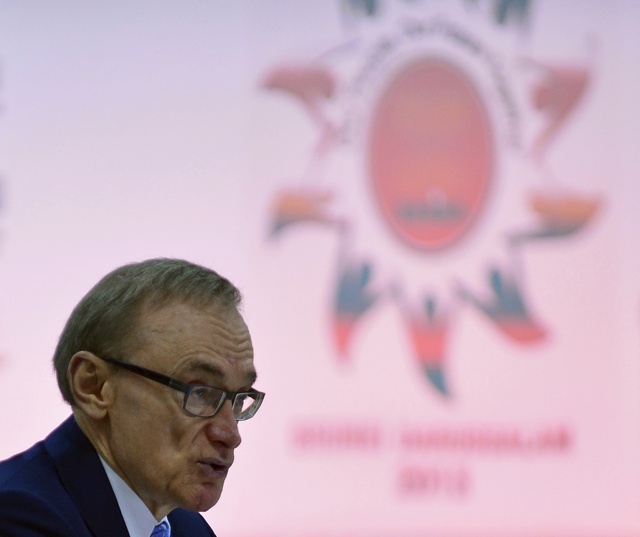This week Australia’s Foreign Minister Bob Carr is making his second trip to Burma since taking on the country’s top diplomatic role in February last year.
During the two-day visit, Senator Carr will engage in bilateral talks with President Thein Sein, Foreign Minister Wunna Maung Lwin, opposition leader Aung San Suu Kyi and leading figures from the business community.
Australia’s foreign policy has shifted significantly since Senator Carr became foreign minister. All sanctions targeting Burma have been lifted and Australia now has a policy of actively encouraging trade and investment in the former pariah nation. While the country maintains an arms embargo against Burma, earlier this year Australia eased restrictions on defence co-operation with the country, which includes humanitarian and disaster relief activities and peacekeeping.
In addition to changing Australia’s foreign policy on Burma, Senator Carr has influenced others. He urged the European Union to also lift sanctions and pressed the UN to soften the wording of their annual resolution on Burma.
As Australia talks up the reform process in Burma, the foreign minister has made little mention of the ongoing human rights violations in the country.
But why has Australia decided not to focus on human rights?
Certainly, the new policy is not in step with the realties on the ground in Burma. Hundreds of political prisoners remain in jail, and others are continuing to be arrested and detained. During the month of June, 17 activists were handed prison sentences, while 70 more are awaiting trail. No political prisoners were released last month, even after President Thein Sein pledged to do so.
Since June 2011, a quarter of a million people have been displaced because of violence, military offensives and sectarian violence. Aid to these communities remains heavily restricted in clear violation of international law.
Women and girls from ethnic groups continue to face sexual violence including rape. Boys are forcibly recruited into the armed forces as child soldiers. The military is still conscripting villagers to work as porters.
[pullquote] “This new policy is putting Australia’s economic interests ahead of what is in the best interest of the people of Burma” [/pullquote]
While the change in Burma has been fast pace, it has not yielded as much reform as it has been credited with. The majority of the population has still not experienced any tangible benefits since the reform process kicked off two years. Members of the Kachin, Rohingya and Muslim communities are in a more precarious situation now than they were under military rule.
Not so long ago human rights were the primary focus of Australia’s foreign policy on Burma, but now business, trade and investment have trumped the government’s former goals.
The Australian government seems to believe that foreign investment will alleviate poverty in Burma, while ignoring the fact that unchecked investments might be extremely harmful to millions of men, women and children in the country.
During a recent interview with the AFP, Senator Carr’s media advisor Patrick Low remarked: “There are numerous Australian companies interested in investing, particularly in the resource sector. That’s something that we encourage”.
Senator Carr has gone on record saying he expects Australian companies investing and operating in Burma to follow the highest international standards. And what safeguards have been put in place to enforce these standards? Only that Australia companies investing in Burma follow the country’s domestic laws.
Ministers, advisors and public servants have stridently rebuked any further discussions on the negative impacts foreign investment in Burma could potentially yield. So unwilling is the Australian Government to engage in this discussion that they have accused individuals who have raised these concerns of defaming Australian companies.
This new policy is putting Australia’s economic interests ahead of what is in the best interest of the people of Burma, while dismissing human rights as a low priority on the country’s foreign policy agenda.
Sadly, this is not unique to Burma. Australia’s foreign policy is becoming more and more centred on the country’s national interests. Senator Carr is being short sighted in focusing on trade and investment, rather than pushing a policy that would benefit Burma’s citizens, Australia and neighbouring countries in Southeast Asia.
Zetty Brake is the campaign coordinator at Burma Campaign Australia
-The opinions and views expressed in this piece are the author’s own and do not necessarily reflect DVB’s editorial policy.



